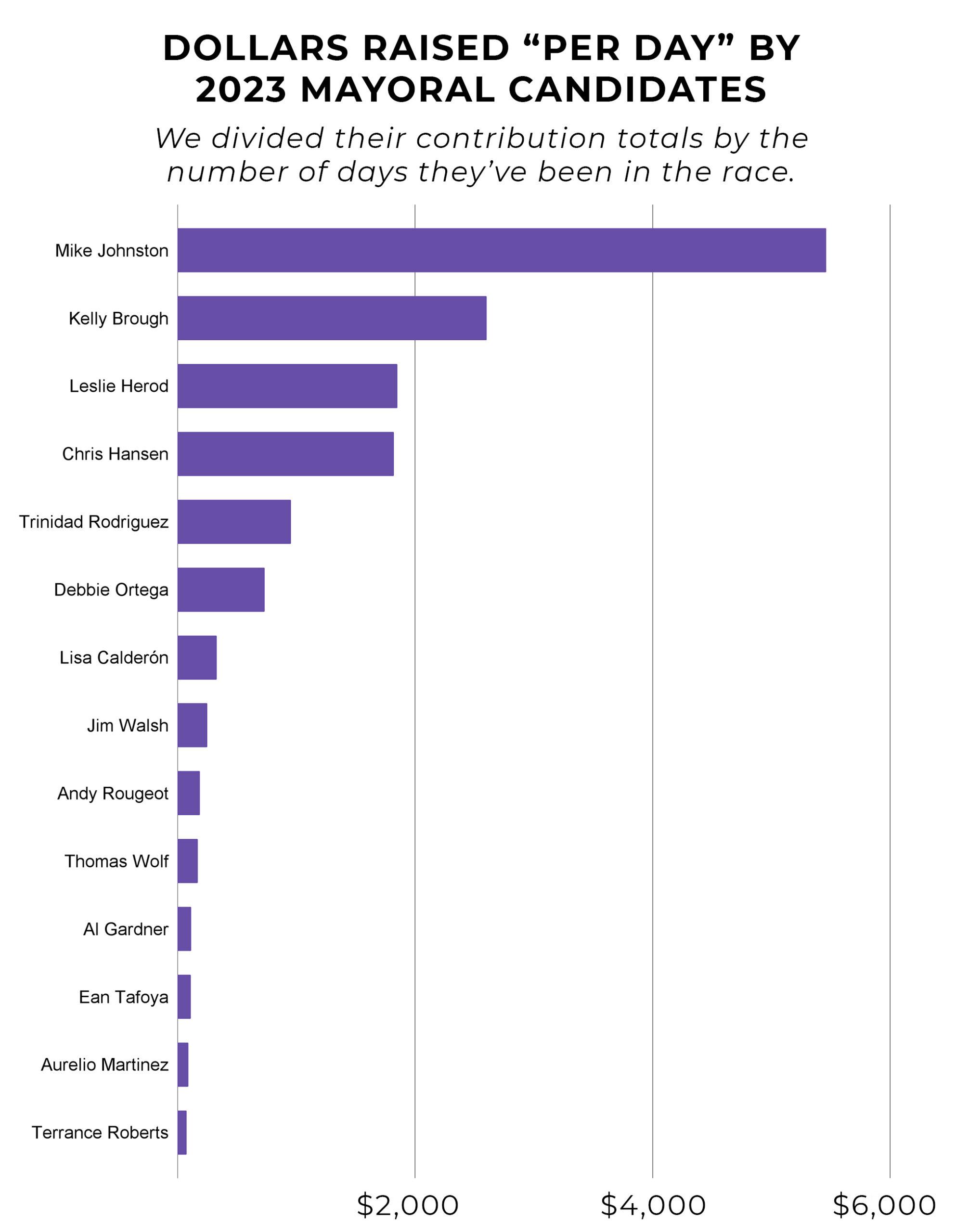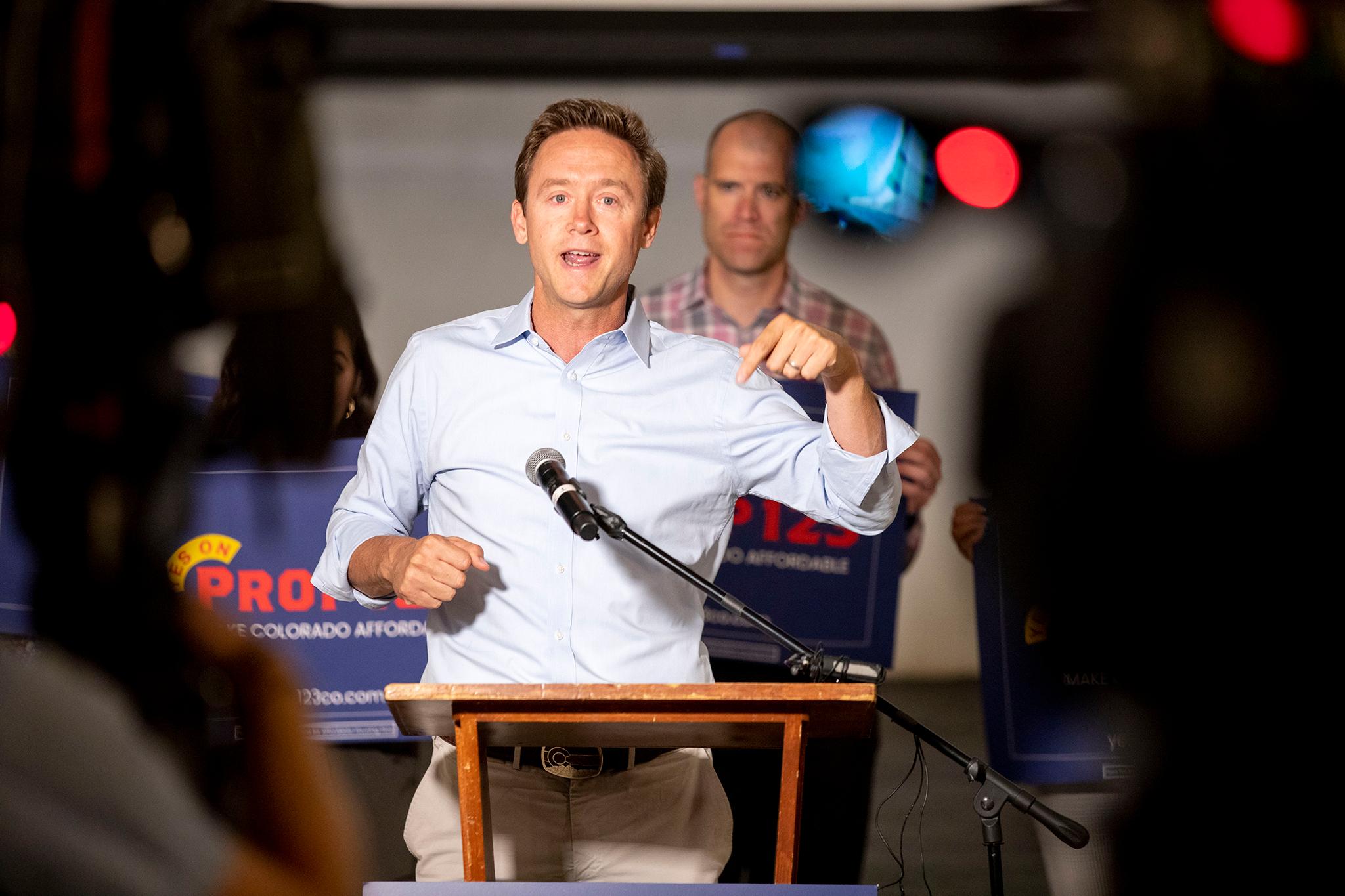Mike Johnston was in the mayor's race for 34 days before filing his first campaign finance report, and yet he raised an eye-popping $185,657.
That's about $5,500 a day, double the pace of fundraising of the next closest candidate, Kelly Brough. (This doesn't count Fair Election disbursements or candidates giving to themselves.)

"Johnston has always been a fundraising machine," Eric Sondermann, a former political consultant, said. When Johnston ran for Colorado governor in 2018, he raised $8.3 million between his campaign and an independent committee that supported him. "The question is, you know, can he sustain that kind of pace?"
For his part, Johnston said there wasn't a lot of planning for mayor, because he was busy with the successful Prop 123 campaign, for dedicating money affordable housing. He announced he was running for mayor a week after the Nov. 2022 election. "And so it was very fast to put together. I think it was more just activating a lot of grassroots supporters all over the city and state," Johnston said.
Johnston also pulls money from outside the city and state. Johnston raised the most from out-of-state donors of any mayoral candidate so far: $59,022, with $14,100 coming from New York, $9,650 from Massachusetts add $9,160 from California. Leslie Herod is just behind Johnston in out-of-state contributions, at $53,918.
One poll, paid for by Debbie Ortega's campaign, put Herod, Lisa Calderón, Johnston and Chris Hansen on about the same level in voters' eyes, a few percentage points behind Ortega -- although no candidate had registered more than 16% in that poll.
Johnston said the out-of state-money is a reflection of the pessimism about Washington DC politics. "And the idea that like here's a city with a real problem solver, who's gonna be able to build broad bipartisan coalitions that take on really hard problems, and make us believe that we actually are still capable of solving these problems. I think that's what people get excited about," Johnston
Johnston's biggest fundraising day was the last day covered by the campaign reports, Dec. 31, when he raised $34,705, more than double his next closest single day of fundraising. (Like most candidates, Johnston sent out a year-end appeal email to supporters.)
Will fundraising make the difference in a municipal election? Sondermann says history suggests it doesn't. Mayors Federico Peña, Wellington Webb, and John Hickenlooper never dominated in terms of money, especially early on.
With a city election, "you're closer to the voters," Sondermann said. "It's much more personal. It has more of a grassroots element to it."
Also, the sums so far aren't enough to change the dynamic of the race. "A couple hundred thousand dollars or even half a million dollars or whatever, that's worthwhile money, but it's not money that changes politics."
Counting all contributions, including loans and Fair Election Fund money, the leaders are Andy Rougeot at $532,527 (though he loaned his campaign $500,000 of that money); Kelly Brough, is next with $497,250, and Leslie Herod with $370,255.
Johnston is fourth, but he has yet to report receiving his Fair Election Fund disbursement, which should come soon.














